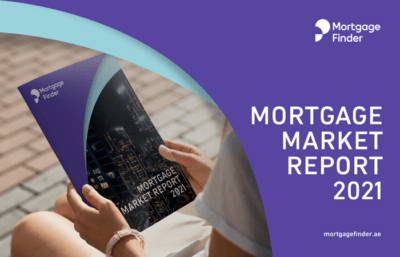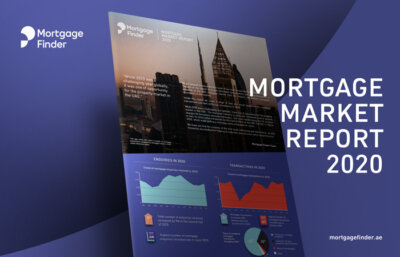

The blurry lines of off-plan marketing practices in UAE
Each time a hapless investor gets lured into a project that doesn’t deliver what was promised, the whole industry suffers
In a competitive buyers’ market, developers need to be creative to stand out from the crowd and entice buyers. All’s fair in love and war, but where does marketing end and deceptive advertising begin?
In a world of fake news, does anybody really care about misleading off-plan property ads? Most don’t, but we should. And if you’re considering handing over your life savings to buy your dream home, you should care a lot.
Off-plan offers may be perfectly legitimate, but at the moment there’s little to protect you if such offers prove to be built on piles of sand. There are not a lot of concrete examples out there, using real numbers, to see how an off-plan offer bears out in the real world. My hope by giving a real-life example is that consumers can decide for themselves what is right for them.
Case in point, I received a text message last month with what appears to be a too-good-to-be-true offer asking me to hand over a Dh299,000 cash deposit with the promise of “move in next year, 90 percent guaranteed mortgage.”
Hmmm. Guaranteed financing to anyone with a mobile phone? Impressive. Fantastic. Scary. Or outrageous. Depending upon your perspective.
Deceptive advertising practices undermine confidence in the sector, and each time a hapless investor gets lured into a project that doesn’t deliver what was promised, the whole industry suffers.
This doesn’t just apply to developers. The most common deceptive ad practitioners are the bait and switch agents who have been frustrating would-be tenants and buyers for more than a decade. Verified listings on propertyfinder.ae (launched in 2014) and government regulation (Trakheesi, October 2016) have helped curb this practice, though unfortunately it still exists.
But with off-plan sales, the stakes are much, much greater. And for now it seems that developers can promise whatever they want. If you choose to believe them, you’re on your own.
I chair mortgagefinder.ae, the UAE’s single largest independent mortgage consultancy, which writes a large chunk of total loans in the country, so I’d like to imagine I’m reasonably well-versed on matters of UAE home finance, and having worked in property marketing for 2 decades, I’m more than familiar with marketing speak.
Upon receiving this text, my first thought was this is, at best, misleading; at worst, illegal. Intrigued, but clearly beyond my paygrade, so I asked our people to investigate. This is what we discovered.
Upon enquiry, within minutes, we were provided with a 2-page home loan application from a UAE bank, the banking partner on a Dubai-based off-plan project. We were assured financing was “absolutely guaranteed”.
What about my income, debts and employment status?
The sales rep clarified that the “90 percent guaranteed financing” from the robo-marketing text I received was not completely accurate. With a 10 percent down payment due upon signing, the bank can lend up to 75 percent of the purchase price under UAE Central Bank regulations. The remaining 15 percent balance, she suggested, wouldn’t need to be paid out of pocket. Indeed, more debt was available to me from the bank, which is offering lines of credit or personal loans to gap-fill the remaining balance due upon handover. And presto: 90 percent guaranteed financing.
Great! Except that funding deposits from personal loans are not permitted under UAE Central Bank regulations and furthermore paying a high-interest personal loan over 3 to 5 years will massively reduce an applicant’s borrowing capacity.
Consider this example: monthly repayments on a 75 percent loan against a Dh3 million property at 4 percent interest over 25 years are Dh11,876 per month. This is potentially affordable for someone earning Dh40,000-plus per month. If you’re over 40 years of age, the mortgage term is reduced, as UAE Central Bank regulations state that the loan must be repaid before the salaried applicant is 65 years of age. So for a 50-year-old, the repayments jump up to Dh16,643 per month.
Add to these the other 15 percent (Dh150,000) balance of the deposit. And what about the purchase costs? Buying direct from developer should save the 2 percent agent’s fee but the following will apply:
- DLD transfer fee 4 percent of the purchase price + Dh590 (Dh121,000)
- Valuation fee (Dh3,000) + 5 percent VAT
- DLD mortgage registration fee (0.25 percent of the loan amount plus Dh590)
- Loan establishment fee (up to 1 percent of the loan amount) + 5 percent VAT
If we tried to finance all of these via a personal loan, as our plucky sales rep suggested, the repayments on just the personal loan component would total over Dh6,000 per month for 5 years.
If you ignore the Central Bank regulations for a minute, this scenario is not impossible for someone earning Dh50,000+ per month who is under 40 and otherwise debt-free. But the bank will care a lot about “stuff” like age, income and employment status. All banks do.
Which begs the question what happens to my Dh300,000 if the “guaranteed finance” at completion cannot be provided?
Off plan marketing to entice buyers is “legitimate,” we were told on the RERA helpline, upon reading aloud the text I received, and recapping the subsequent conversation with the sales rep. There is no law prohibiting financing offers as long as both parties – developer and buyer – enter into a contract willingly. RERA leaves it up to developers’ discretion to set the terms of its offers, and buyers’ discretion to agree to them.
Dubai completed 14 percent more residential real estate transactions in 2017 over the year before, with some 69,000 deals done, according to the Dubai Land Department. With a surge of off-plan developments with a range of low deposit and even back-end payment schemes on offer, it is critical to proceed with caution.
________________________________________________________________________________________________
Written by Lukman Hajje – CCO Propertyfinder Group.
A version of this article appeared in The Khaleej Times






